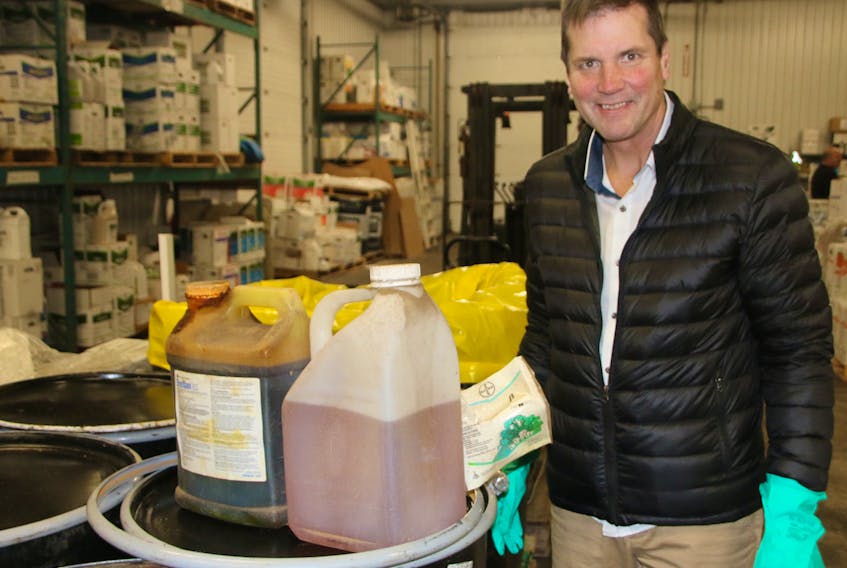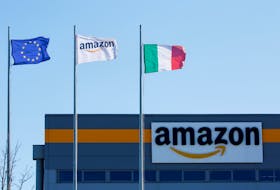UPPER ONSLOW, N.S.
Old pesticides and livestock medications were filling bins in an Upper Onslow storage building.
Through a program designed to help make farmers cleaner, a drop-off was held for unwanted pesticides and medication, as well as pesticide and fertilizer containers.
“This is an example of full life cycle stewardship,” said Barry Friesen, general manager of Cleanfarms Inc. “The cost is covered by manufacturers. If we didn’t run programs like this, it would be very expensive on the tax base to manage.”
Cleanfarms, in partnership with CropLife Canada and the Canadian Animal Health Institute, operates collection programs in each region, once every three years.
“People often don’t use all of the product, and they just put what’s left in a shed,” said Friesen. “Growers’ groups and agricultural federations inform members about the drop offs.
“A hazardous waste contractor picks up pesticides and medication, and it goes to Swan Hills, Alberta, to be incinerated.
“Bulk containers become high density polyethylene drainage tile.”
He said most of the material dropped off in Atlantic Canada is pesticides.
Sometimes people bring in something odd, like a contaminated mop, but those aren’t accepted through the program.
Since being launched in 1998, about three million kilograms of obsolete pesticides have been collected and incinerated.









